The Moustached Journalist says;
FIFPlay, a community website for EA Sports FIFA Football and FIFA Manager video game, has this to say about politics in football in one of its articles titled The Relationship Between Football and Politics.
“Football, a popular sport with an estimated 3.5 billion fans worldwide, is a cultural phenomenon that has a huge impact on communities all over the world. Beyond the thrill of the game, football is intricately linked to politics in a variety of ways, ranging from government funding to concerns of identity and social justice.
“The relationship between football and politics reflects greater socioeconomic difficulties and challenges of our time, and it provides insights into how politics may shape and be shaped by sports. Here is a note that will look at the intricate relationship between football and politics, exploring how politics influences football and vice versa, as well as the societal ramifications of this interaction.
“Politics and football have been inextricably linked since the game’s inception. Football has been used to spread political propaganda, and politicians have exploited it to further their own goals. Football has been a source of national pride in some countries, and the success or failure of the national team has been viewed as a reflection of the country’s political and economic position”.
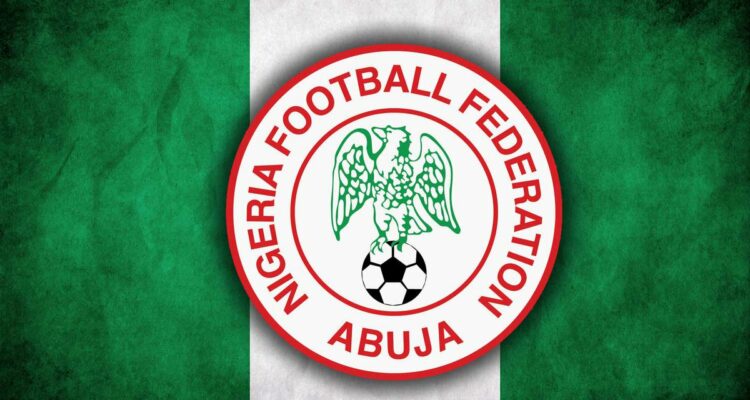
Politics, however, has drenched Nigerian football into perilous times such that a few instances when these so-called football administrators tussle for power to satisfy their own selfish will, the nation’s most followed sport is vehemently dealt with from the result of whatever the action was. Football politics in this part of the world, is a symbolic parasite deeply consuming the marrowbone of our game, thus, if not properly treated with the necessary cure may inanimate the sport in Nigeria.
Recall that at the start of June 2015, due to some political altercations that bewildered the Nigeria Football Federation (NFF), FIFA had to suspend Nigeria from international football. This, possibly, was not the first time that the big stick was being wielded on us nor would it be the last. Nigeria is familiar with a series of frivolity in so many things, and this shenanigans with Nigerian football can not be separated from our bad behaviour.
Sadly in today’s reality, for one to adequately understand the reasons for the suspension of the nation’s football federation by the world’s top football governing body, the Federation of International Football Association (FIFA), one will have to take a look at the remote causes of that suspension, right from when it all broke out from a controversial statement made in July 2005 by Ibrahim Galadima, the chairman of the NFF at that time.

Remember that Nigeria failed to qualify for the 2006 FIFA Men’s World Cup in Germany, losing out the ticket to Angola in a rather disgusting manner. Following that irksome failure, Ibrahim Galadima, being the country’s federation presiding administrator unquote said that qualification was not our birthright. As a result of that statement, some Nigeria football stakeholders went berserk and attacked him like a wild animal, to the point that he was wanted out of office by all means.
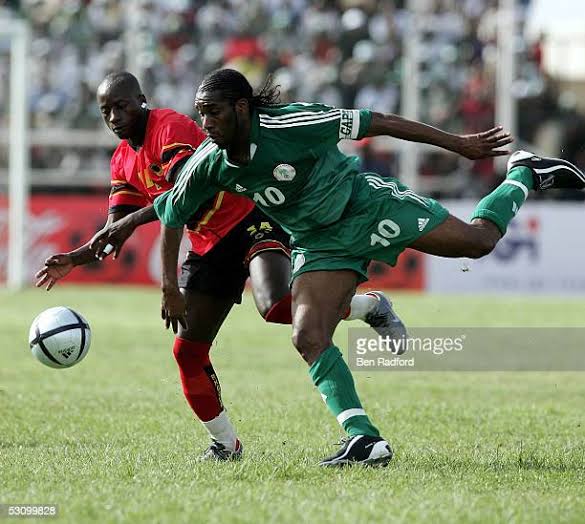
I understand that most readers like yourself will be overly interested to know that an utterance as trivial as this was not the only reason for the uproar. Well, you may not be far from the truth anyway. With more to it that behold the eyes, Cheta Nwanze, a renowned sports journalist in his article Football is Politics in Nigeria explained that the former NFF secretariat, Glass House, in Abuja suddenly became a frenzied stead for Galadima who was about time to be ousted.
In 2006, Galadima called for and won the NFF elections in Kano, his hometown, which were conducted by Nduka Irabor. Unfortunately, Samaila Sambawa, the sports minister at that time never once had Galadima in his good books, and was fervid to see him axed too. Pointing from all directions, the cap was becoming unfit for the head of Galadima, almost everyone would pay whatever cost to have him thrown out of the Glass House.

At that same period, Amos Adamu was much of a big cheese in FIFA and was contracted to nail Galadima to the stake. Without leaving any stone unturned, he set the coast clear for Urs Linsi, the then secretary of FIFA, who amicably agreed to weigh his support behind the sect of Pharisees who eventually had Galadima removed. The deal was done, so what’s next from there; a continual booting or troubleshooting of a virus-infected football system?
Amid the topsy-turvy, a new NFF election was held which saw Sani Lulu emerge victorious with 75 of 97 votes cast, and Lumumba Adeh and Segun Odegbami unequally shared the spoils. Even with an unprecedented development of grassroots football in the country recorded by Sani Lulu’s administration, something tragic happened during his tenure in 2010. Just so you care to know why, until then keep reading with your mind open.

Many Nigerians will outrightly tell you the answer is corruption. With rampant corruption across all sectors of governance, especially, the football management that has been particularly hit, with elections into the top echelons of the football association just as much a do-or-die affair as in the wider politics. The result is a compromised football system altogether, that is scarcely worth a drop of sweat and tied to the apron strings of these administrators turned politicians.
Forward to July 2008, the Congress of the nation’s football body on its concord changed the name of the ‘NFA’ to ‘NFF’, and also improvised ‘chairman’ to ‘president’. The same Congress also amended the statutes so that the only way to get into the NFF is through the State Football Association. Going forward with business under those new changes, the NFF President became constitutionally unrestricted while he could preside over both the electoral and in-house committees.
Note that he, as the presiding administrator can also be a candidate in the elections of which he is the hidden umpire. Also, one may incompletely agree to this supposition that since the National elections are held before that of the State Football Association elections, the President of the NFF can guarantee that those loyal to him win at state levels.
The NFF Congress of 2010 normally meant to be held before the FIFA Men’s World Cup in South Africa was shifted to August and later after the Mundial tournament. Another twist to the story was that the State Congresses were shifted after that of the National Congress of the same year rather than before. I am only telling you what I know here, kindly don’t blame me as we are both confused. So, who do we now believe, the deformed NFF or whoever allegedly said that?

Thus, unable to rebirth itself, Nigerian football is now a ghost of its past life. While corruption at all levels of the game will go a lot in explaining the current rot in the game, even so, it does not tell the whole ordeal. Corruption in Nigeria, after all, is scarcely worse than years ago. With a glare of a hopeful tomorrow, we might also expect the flourishing of Nigerian football to be prosperous rather than hampered by closed political systems.
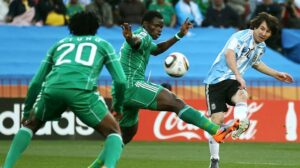
To the greatest surprise Sani Lulu’s desire to stay beyond 2010, was however short-lived through impeachment by the NFF Governing Board. This was after he had made sure that State Football Association elections were after that of the National. As an appeasement, he sponsored over 300 people, which were the State FA chairmen and their wives or mistresses to the 2010 FIFA Men’s World Cup in South Africa. Unluckily, fate intervened and the Super Eagles had a disastrous outing at the competition.
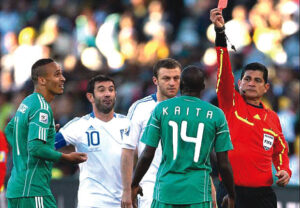
It paved the way for a new set of football stakeholders in orchestrating a coup d’état that was led by Chris Green and sacked the Sani Lulu-led NFF board, which also held elections that produced Aminu Maigari. Never to be seen was Lulu and his subordinates, Amanze, Ucheagbulam and Ogunjobi out of the door. The new owners of the Glass House were Maigari, Ogba and Green. Unknown to many that he had a thing under his sleeves, Maigari continued with Lulu’s tactic of swapping elections.

If the above is true, then we should expect to have worse outcomes for corruption in our football under various future administrations. But it is quite to say that Nigerian football fortuned much better during the military governments than today, right across the national and state levels. At the same time, however, our football in the present day has barely even grown, stagnated, or even decayed.
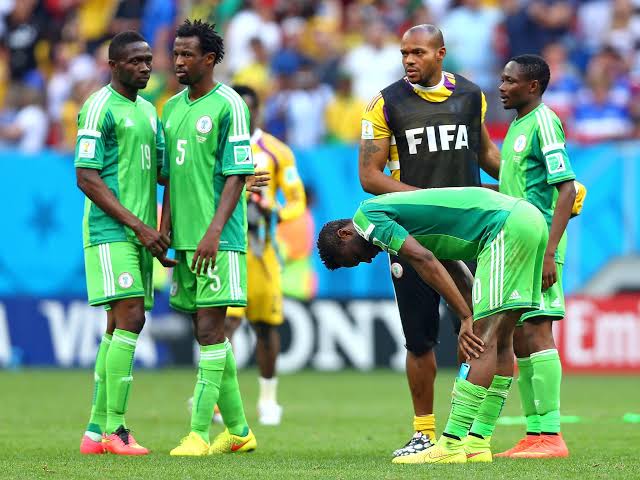
As it were in 2010, members of the NFF Congress and their hangers-on, got an all-expenses paid-for joy ride to the 2014 FIFA Men’s World Cup in Brazil from the altruistic Aminu Maigari-led NFF board. Maigari even went a step further with the Congress on his porch. The icing on the cake was that his more serious opponents were even banned from contesting. His second term seemed to be a walk in the park.
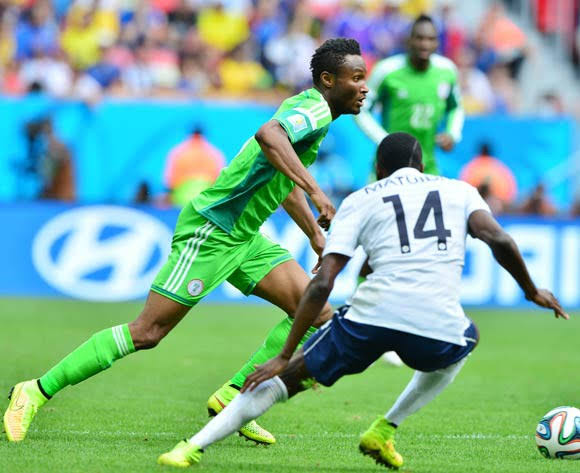
With Rumson Baribote, then serving a 15-year ban from all football-related activity, even though Luciano Moggi was not left out of the scorn and Taiwo Ogunjobi also had a 10-year ban; all of these bans were to begin in October 2013. Neither man is a saint. Had the drama towards the elections not happened, Maigari’s second term was lock, stock and barrel assured.

All in all, the drama that has plagued Nigerian football, has no doubt dispersed the successes and achievements seen in the past years of the game. This, of course, has also caused a decline in the level of confidence that would have been entrusted by Nigerians to these current set of football administrations, both at the federation and all state associations. However, there is still some apt time to rewrite the history of Nigerian football on clean slates by ensuring that the nation’s football management attributes accountability, transparency, truth, good governance, independence, fairness, and objectivity.
Football is so greatly interwound with politics and has always been. Football has long been politicised and has repeatedly been used as the venue for political and social matters. Many have argued that politics should be completely kept out of football, that it is a sport and not a medium to expedient. Those who argue for politics to be delisted from the beautiful round-leather game are not wrong.
